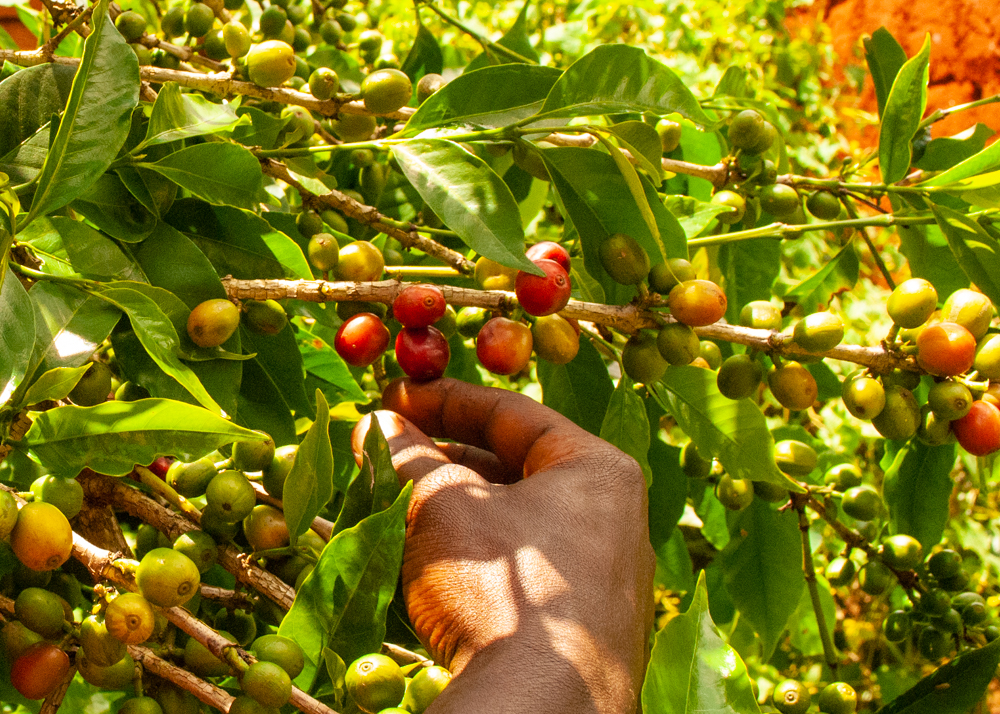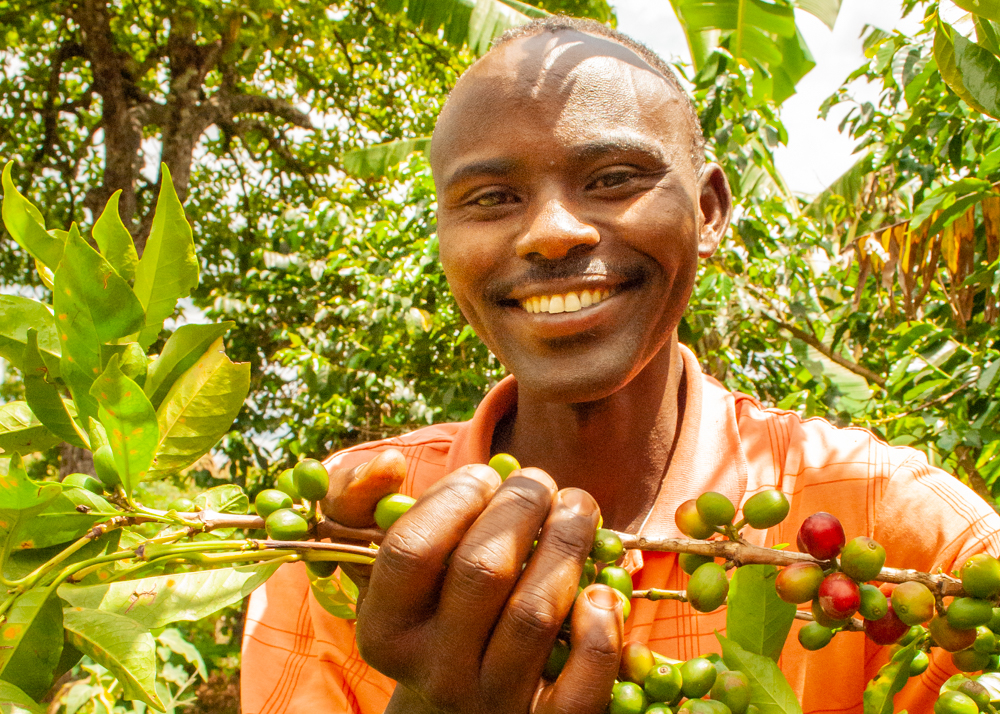Dried apricot, raspberry, brown sugar. No, these aren’t candle scents; they’re the delicate flavors of specialty coffees sourced from the highlands of Burundi and Rwanda. In my very caffeinated opinion, coffees from these two hilly countries in East Africa are among the world’s most delicious, and yes, they even fight poverty.
So why haven’t you heard of these coffees before? Well, it’s complicated. But part of the answer is simple economics: In Burundi, coffee is the country’s largest cash crop, but Burundi’s exports comprise only a small slice (.12%) of the world’s coffee exports.
Rwanda exports more coffee than Burundi, and a larger percentage goes to the U.S. And 20 years ago, Rwandan farmers made an important pivot in their coffee production: They started growing and processing more specialty coffee than regular coffee.
What is specialty coffee?
I didn’t know much about specialty coffee until I lived in Burundi and traveled through Rwanda. It’s mostly what you’d imagine. Regular coffee is a lesser quality product that ends up in major label blends and plastic tubs of well-known brands in most grocery stores. Specialty coffee, on the other hand, usually retains its origin source on the label, has higher quality and production standards, and more importantly, garners a high profit for the farmers.
In 2011, coffee farmers in Rwanda who grew specialty coffee received $3.50 per kilogram—a significant increase from the $0.20 per kilogram they received from growing regular coffee in previous years. Seeing the financial incentive, Rwandan farmers have joined cooperatives, improved farming techniques, and built washing stations to process their coffee cherries to meet higher quality standards. HOPE’s microfinance institution in Rwanda, Urwego Bank, finances several washing stations in the supply chain for the Rwanda selection of Westrock Coffee, which is sold in some grocery stores around the U.S. You can find a store near you here.
 While Rwanda’s specialty coffee farmers have experienced higher profits for their crops, Burundian coffee farmers have struggled. Political and economic instability in the last five years has resulted in significant economic and logistical challenges for farmers and coffee producers trying to get their coffee to international markets. But with World Bank funding and several invested private organizations, new washing stations and cooperatives are popping up around the country!
While Rwanda’s specialty coffee farmers have experienced higher profits for their crops, Burundian coffee farmers have struggled. Political and economic instability in the last five years has resulted in significant economic and logistical challenges for farmers and coffee producers trying to get their coffee to international markets. But with World Bank funding and several invested private organizations, new washing stations and cooperatives are popping up around the country!
How to fight poverty with coffee
One organization, Long Miles Coffee Project, works directly with farmers to train them on better cultivation techniques and offers them a fair wage for their coffee at several Long Miles washing stations. And recently, they’ve partnered with HOPE’s microfinance institution in Burundi, Turame Community Finance, to offer financial services like personal loans to Long Miles’ Burundian coffee scouts who work with farmers. There are also ongoing discussions to offer financial services to the coffee farmers that Long Miles works with.
In Burundi alone, there are between 600,000 and 800,000 coffee farmers, many of whom could still benefit from an improved specialty coffee supply chain. This starts on the ground with better training, financial services, and infrastructure, but also with coffee drinkers around the world who value the quality and poverty-fighting potential of Burundian coffee.
If you don’t see Burundian coffee on your local coffee shop’s shelves, you can order some from Passenger Coffee Roasters in Lancaster, PA. Add in a farmer’s bundle—a watering can, a plot of land, and seeds—from HOPE’s gift catalog, and you have a thoughtful gift for a loved one who is passionate about their morning java and investing in families in the HOPE network!
















